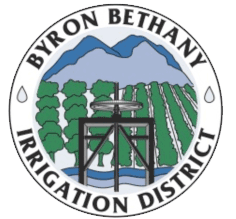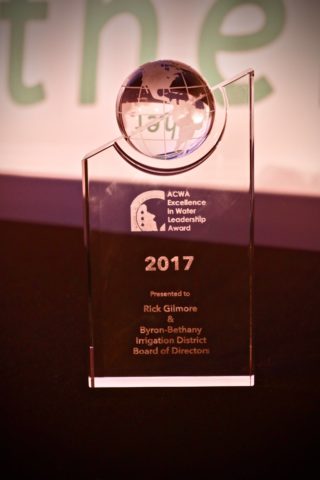Sacramento, CA (May 30, 2017) – On Tuesday, the California State Assembly overwhelmingly passed a major water bill backed by Byron-Bethany Irrigation District (BBID). Assembly Bill 313, introduced earlier this year by Assemblyman Adam Gray (D-Merced) to reestablish balance and fairness for California’s water rights holders, was passed with a 64-4 vote. BBID provided technical support in crafting the bill, which makes significant repairs to California’s broken water management structure.
“Assemblyman Gray’s visionary leadership brought this critical, statewide issue to the forefront – and today’s decisive action signals that lawmakers agree it’s time to fix our broken system,” said BBID GM Rick Gilmore. “State agencies shouldn’t have unchecked power and little accountability, preventing water rights holders from being treated with the foundational fairness our justice system promises one and all. AB 313 balances the scales.”
The bill establishes a new water rights management structure, creating a new Water Rights Division in the Office of Administrative Hearings (OAH) to handle all water rights matters. Currently, the State Water Resources Control Board (SWRCB) exercises near-comprehensive control over California’s water rights. The SWRCB writes regulations, initiates enforcement actions, and conducts hearings in its own courtroom in which Board staff act as the prosecution and Board members act as judge and jury.
“As BBID itself has experienced, that structure’s built-in conflicts of interest and biases result in an unfair process,” Gilmore said.
Under AB 313, all quasi-adjudicative matters involving water rights would be decided upon by administrative law judges in the new Water Rights Division, which would conduct hearings neutrally. The bill ensures all hearings regarding the issuance of administrative civil liability (ACL) and cease-and- desist orders (CDO) involving water rights are to be held in the new Water Rights Division, rather than the SWRCB. This productive transfer of power eliminates any potential duplicative efforts for any similar hearings and responsibility to fall under the SWRCB.
Prior to Tuesday’s vote, AB 313 previously passed out of the Assembly policy and fiscal committees without a single “no” vote. The bill now heads to the Senate, where it will be considered in the coming weeks.
“This is a big step in the right direction for California water,” said BBID Board President Russell Kagehiro. “Should this bill become law, communities across the state will have a more secure water supply.”


